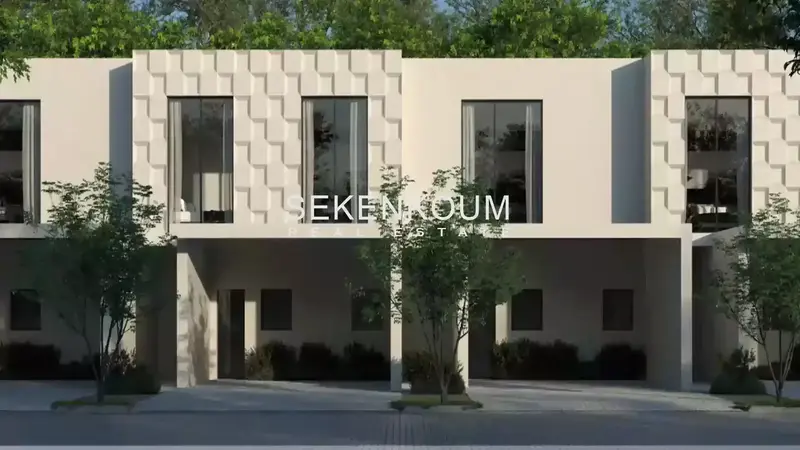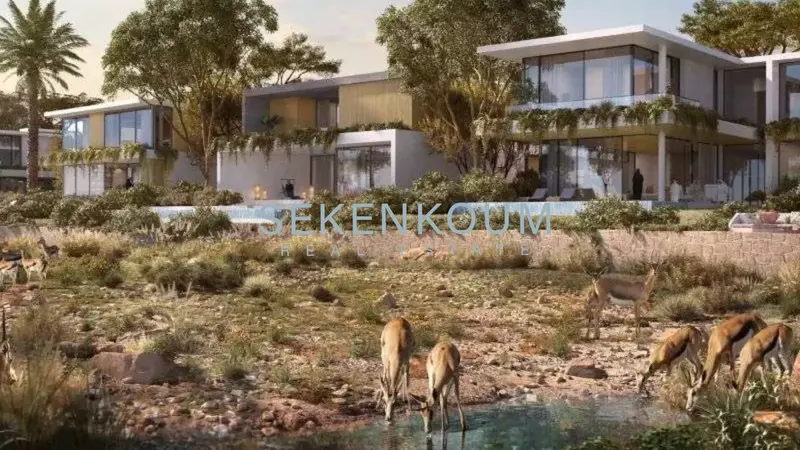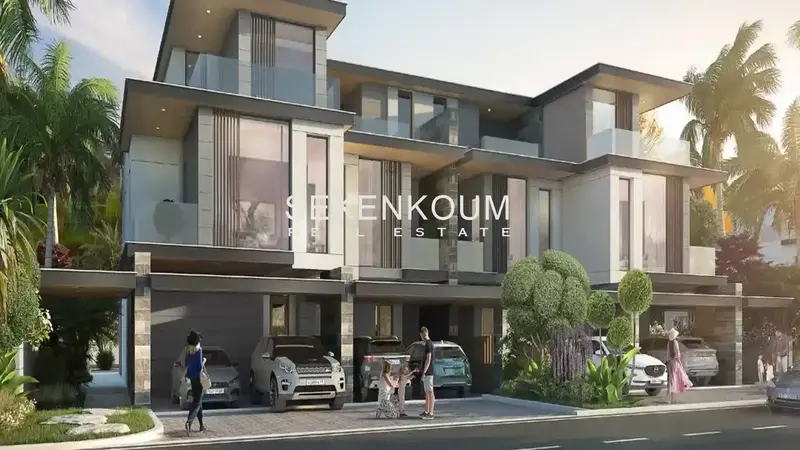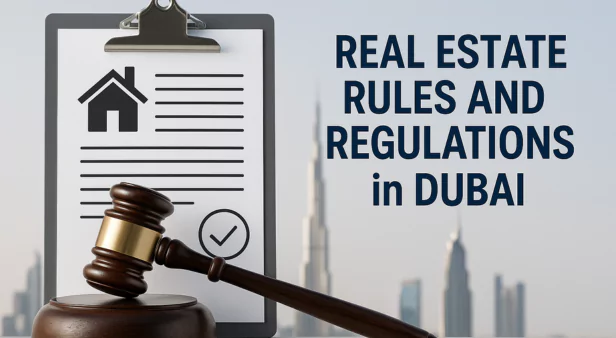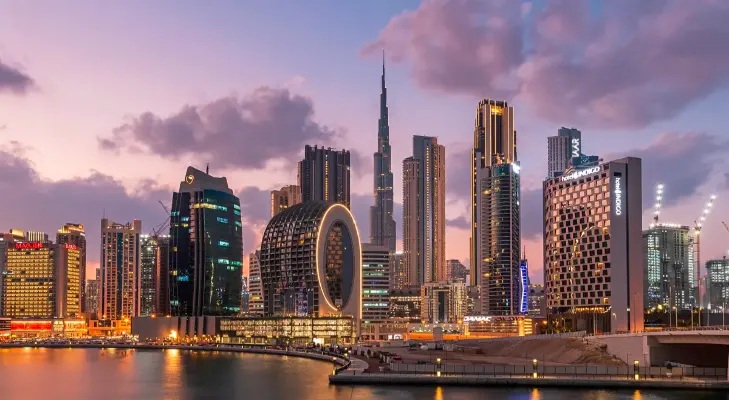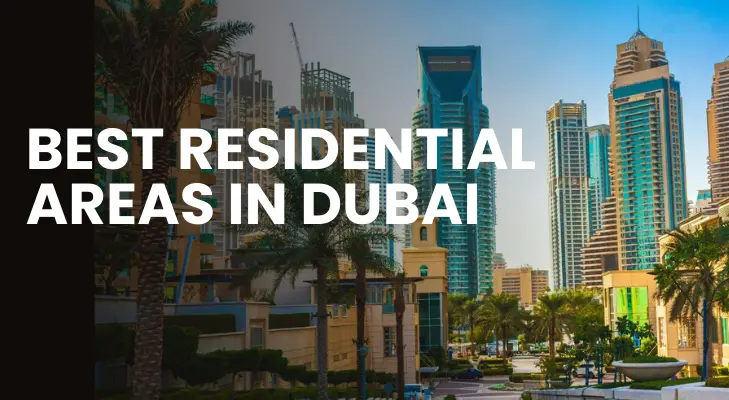Unveiling the Forces Behind Dubai's Real Estate Market Dynamics
- Jun 10,2024

Dubai, one of the world's most vibrant and rapidly developing cities, boasts a dynamic real estate market. Over the years, it has attracted investors, expatriates, and tourists from all corners of the globe, significantly influencing its property prices. Various factors contribute to Dubai's fluctuating real estate prices, and understanding these can provide valuable insights for potential investors and residents alike. This blog explores the primary elements that shape Dubai's real estate market.
Economic Health and Stability
The overall economic condition of Dubai plays a pivotal role in determining real estate prices. As a global business hub, Dubai’s economy is highly diversified, with significant contributions from tourism, finance, trade, and real estate. Economic stability and growth attract foreign investments, leading to increased demand for properties. Conversely, economic downturns can result in reduced investor confidence and lower property prices.
Government Policies and Regulations
Government policies and regulations significantly impact the real estate market in Dubai. The introduction of freehold property laws in 2002 allowed foreign nationals to buy properties, which led to a surge in property investments. Furthermore, government initiatives such as the Dubai Expo 2020 have spurred infrastructural development and boosted investor confidence. Regulatory measures, such as mortgage caps and rental caps, also aim to stabilize the market, preventing speculative bubbles and ensuring sustainable growth.
Infrastructure and Development Projects
Dubai’s continuous infrastructural development is a major factor influencing real estate prices. Iconic projects like the Burj Khalifa, Palm Jumeirah, and the Dubai Marina have transformed the cityscape, making Dubai an attractive destination for property investments. Ongoing and future projects, such as the expansion of the Dubai Metro and new residential and commercial complexes, contribute to rising property values by improving connectivity and enhancing the city’s overall appeal.
Supply and Demand Dynamics
The balance between supply and demand is a fundamental factor affecting real estate prices. Periods of high demand coupled with limited supply lead to increased property prices. Conversely, an oversupply of properties can result in price reductions as developers and sellers compete for buyers. Dubai’s real estate market has experienced both extremes, with periods of rapid price increases followed by corrections when the supply outpaced demand.
Location and Proximity
Location is a critical determinant of real estate prices in Dubai. Properties in prime locations, such as Downtown Dubai, Dubai Marina, and Business Bay, command higher prices due to their proximity to key business districts, entertainment hubs, and luxury amenities. Waterfront properties and those with views of iconic landmarks also tend to be more expensive. Conversely, properties located farther from the city center or in less developed areas are generally more affordable.
Foreign Investment and Expatriate Population
Dubai’s status as a global city attracts a significant expatriate population and foreign investment. The influx of expatriates increases the demand for rental properties, while foreign investors seek lucrative opportunities in the real estate market. Policies that facilitate foreign ownership and residency, such as the Golden Visa program, further bolster investment and drive property prices upward.
Interest Rates and Financing Options
Interest rates and the availability of financing options are crucial in determining real estate affordability. Lower interest rates reduce the cost of borrowing, making it easier for individuals and investors to purchase properties. This increased purchasing power can lead to higher property prices. Conversely, higher interest rates can dampen demand as borrowing costs rise. The availability of diverse financing options, such as mortgages and developer payment plans, also influences buyers’ decisions and market dynamics.
Rental Yields and ROI
Potential rental yields and return on investment (ROI) are key considerations for investors in Dubai’s real estate market. Areas with high rental yields and strong ROI prospects attract more investors, driving up property prices. The lucrative rental market, supported by a large expatriate population and a steady influx of tourists, makes Dubai an attractive destination for property investments. Investors often evaluate rental income potential and long-term capital appreciation when making purchasing decisions.
Tourism and Hospitality Sector
Dubai’s thriving tourism and hospitality sector significantly impacts real estate prices. As a major tourist destination, Dubai attracts millions of visitors annually, increasing the demand for short-term rental properties, hotels, and serviced apartments. Major events, such as the Dubai Shopping Festival and international conferences, further boost tourism and, consequently, the real estate market. The development of new tourist attractions and facilities enhances Dubai’s appeal, driving property prices in key areas.
Technological Advancements and Smart Cities
The integration of technology and the development of smart cities contribute to Dubai’s real estate market dynamics. Smart homes, digital infrastructure, and sustainable technologies enhance the quality of living and attract tech-savvy investors and residents. Dubai’s vision of becoming a leading smart city involves implementing advanced technologies in various sectors, including real estate. These advancements increase the desirability of properties, leading to higher prices.
Global Economic Trends
Global economic trends and geopolitical factors also influence Dubai’s real estate market. Economic conditions in major source countries for investors and expatriates, such as India, China, and the UK, can impact investment flows and demand for properties. Geopolitical stability and international relations affect investor confidence and the overall market sentiment. Additionally, fluctuations in global oil prices can indirectly influence Dubai’s economy and real estate market, given its historical ties to the oil industry.
Dubai’s real estate market is shaped by a multitude of factors, ranging from economic health and government policies to infrastructure development and global economic trends. Understanding these influences is essential for investors, developers, and residents looking to navigate the dynamic market landscape. As Dubai continues to evolve and grow, staying informed about these factors will be crucial in making informed real estate decisions and capitalizing on opportunities in this vibrant city.

